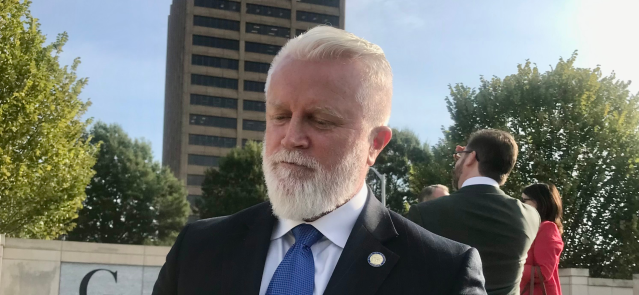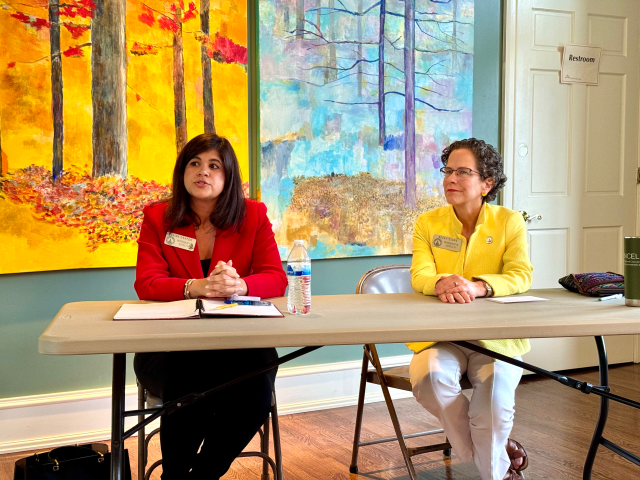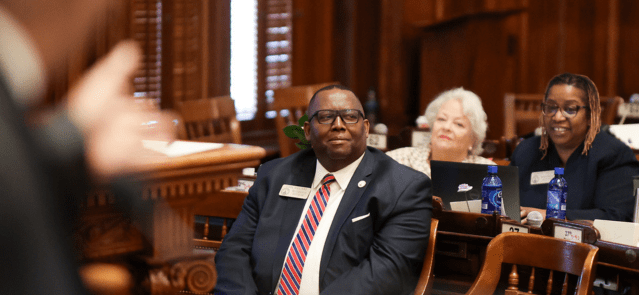Stay ahead of the curve as a political insider with deep policy analysis, daily briefings and policy-shaping tools.
Request a DemoLifelong educator born to help Georgia’s struggling schools
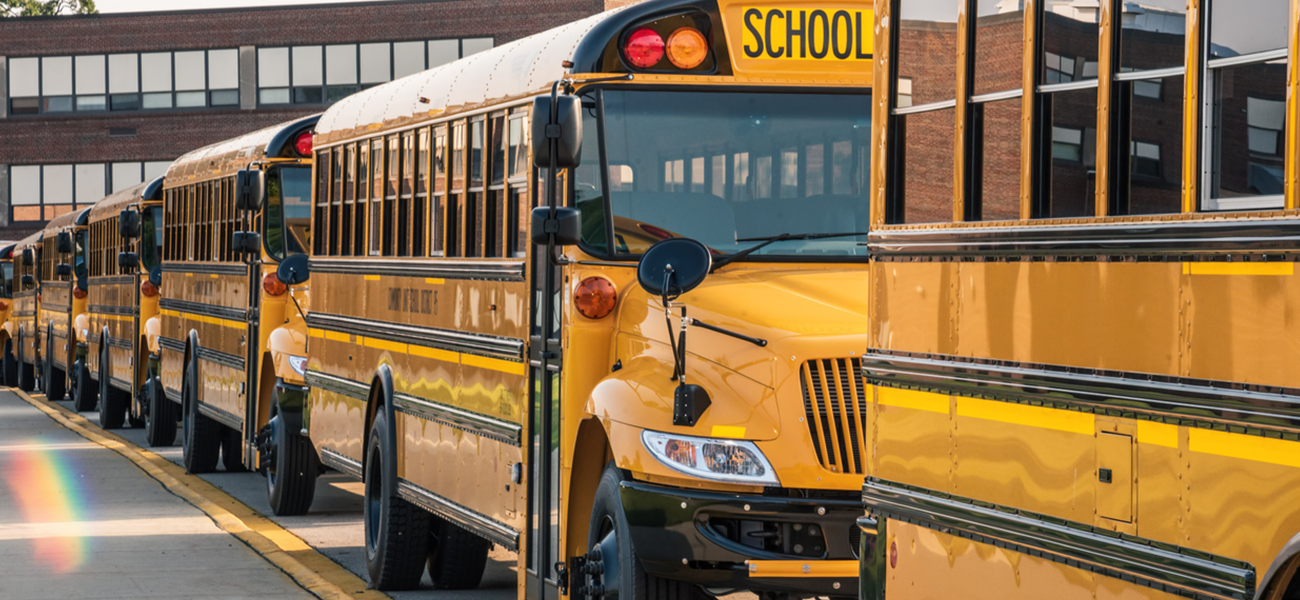
Credit: iStock
- Playmaker: Stephanie Johnson
- Role: Georgia Department of Education deputy superintendent for school improvement.
- Tenure: 2017 to present.
Stephanie Johnson oversees the state government's efforts to raise academic performance for thousands of Georgia's struggling students.
Since 2017, Johnson has led a state office that sends staff specialists and federal money to help turn around classroom experiences for more than 150,000 public K-12 and charter students in Georgia. With tight school funding and challenges for students from low-income communities, her job was already tough long before the COVID-19 pandemic hit Georgia in March 2020.

“My entire life has always been the conversation around teachers.”
Johnson wasn’t just called to a career in helping Georgia’s most struggling students. She was born into it.
Johnson, a longtime teacher and administrator who’s worked with thousands of students in low-performing public schools across Georgia, grew up in the “one-light town” of Chatham, Alabama, where both her parents were passionate educators.
Their love for schools ran so deep that her father, a local principal and later superintendent at several schools, and her mother, a teacher and media specialist, frequently planned the family’s vacation trips around attending educational conferences, Johnson said.
“My entire life has always been the conversation around teachers,” Johnson said in a recent interview. “It was almost a natural progression for me to do this kind of work when I got older.”
'I need you to take this show on the road'
Over decades, Johnson rose the ranks in local Atlanta-area schools to become head of the state Department of Education’s Office of School Improvement, which aims to boost the academic performance and overall classroom experience for students in Georgia’s struggling schools.
She started in Clayton County as a principal tasked first with turning around Marrow High School and Jonesboro High School, as well as Sequoyah Middle School in DeKalb County. Next, she led turnaround efforts at Atlanta’s Maynard Jackson High School after a high-profile cheating scandal in the city’s public school system. Her work at Jackson paid dividends as test scores climbed and caught the eye of Georgia’s state school superintendent, Richard Woods.
“I remember him (Woods) saying, ‘I need you to take this show on the road and make it statewide,’” Johnson said.
“Since then, that has been the mission … understanding the need for children to have every opportunity possible no matter what your address is or your socio-economic status.”
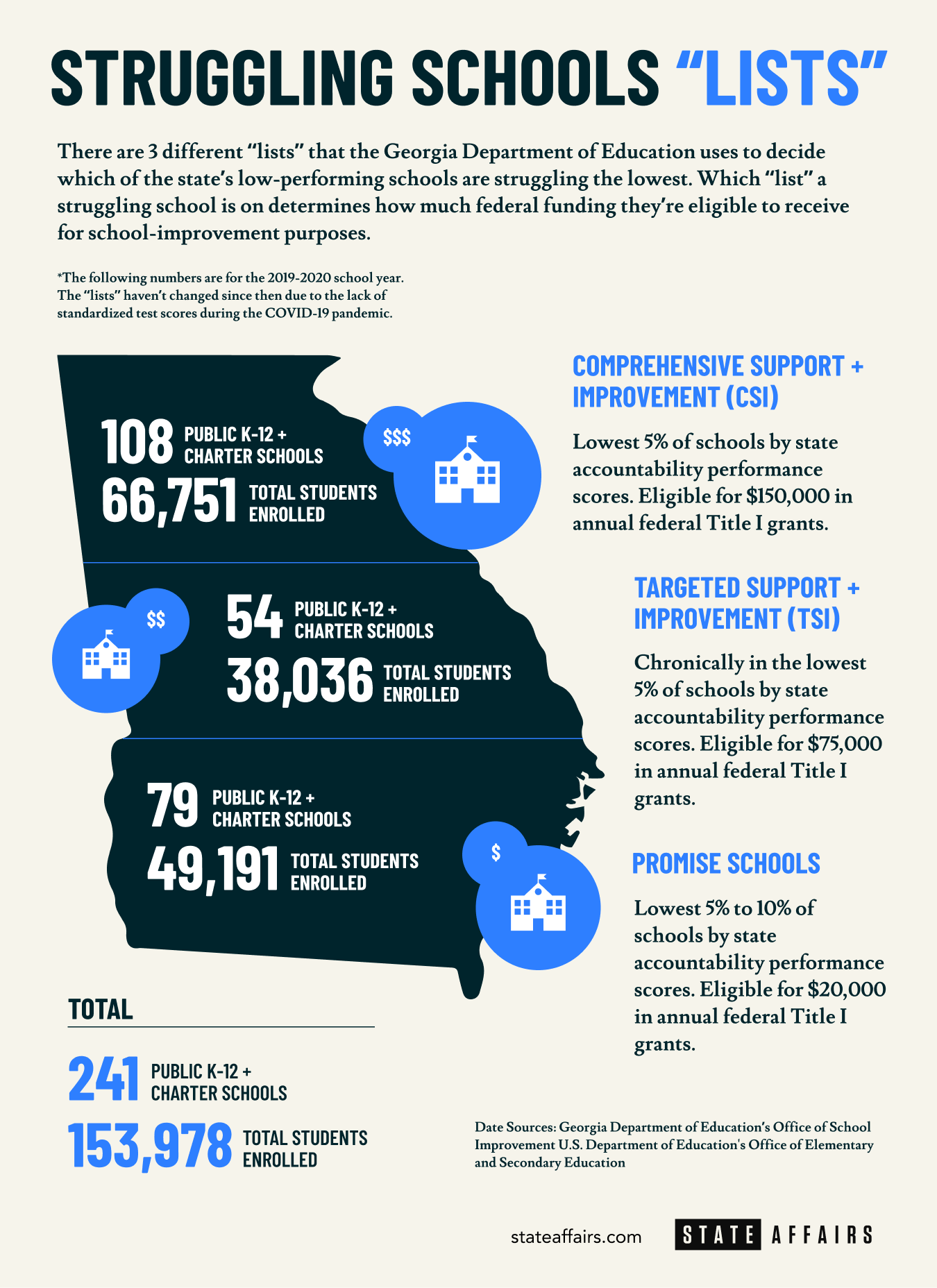
'Every community has something that's great'
As a deputy superintendent since 2017, Johnson has spearheaded the state education agency’s efforts to pull up test scores, attendance and graduation rates for more than 150,000 students each year in Georgia’s low-performing schools. She oversees a team of school-turnaround specialists who fan out to dozens of schools across the state to help local districts shape improvement plans, data analysis, teacher training and how to spend federal grants on teaching tools and outside consultants.
Key to her strategy is a positive approach to help guide local teachers and school officials on how to boost performance for their students – not just telling them what to do.
She uses words like “opportunities” and “aspirations” instead of “weaknesses” and “struggles” when talking with local school leaders. She always highlights a school’s strengths right off the bat, before giving them an “extremely honest” take on what their performance data shows.
“Every community has something that’s great,” Johnson said. “Some people say negative things about the schools without realizing you’re tearing down the community.”
'When we say ‘turnaround’, it really shouldn’t be just a test score'
Like all other states, Georgia must identify annually which of its public K-12 and charter schools rank among the lowest 5% in terms of academic performance and overall school climate, as required under the federal Every Student Success Act. Currently, Georgia has roughly 160 schools marked as low-performing with another 80 or so schools close to the 5% edge. State officials identify those schools based on test scores and climate ratings in what’s called the College and Career Ready Performance Index.
There are many more factors that go into whether a school struggles or soars, Johnson said. Particularly important are student health and well-being, which her team has tackled recently by helping schools offer non-academic services like dental, vision and mental-health screenings. Going forward, Johnson wants Georgia’s performance ratings to factor in more of those areas that stem from the impacts a surrounding community’s social and economic issues have on their local schools.
“When we say ‘turnaround’, it really shouldn’t be just a test score,” Johnson said.
“It really should be about what we do to serve the whole child in a way that it literally breathes life into them and makes them believe that they can do more, but at the same time, having our faculties have the capacity to build that for them.”
'They’re going to need us'
On top of historical hurdles, schools across Georgia have also spent the last year and a half coping with the COVID-19 pandemic. Georgia’s list of struggling schools has not changed since 2019 due to a lack of year-end test scores and other performance requirements that state officials waived during the pandemic. That makes it tougher to pinpoint whether struggling schools have made progress.
Nonetheless, Johnson said she and her team haven’t missed a beat. They continued meeting with local school officials regularly on webcam calls and helped districts lock down $23 million in grants for better internet access and technology to hold classes remotely. She’s also confident the state can keep tabs on student performance during the pandemic through formative assessments in certain subjects that have not been dropped.
With schools across Georgia cranking back up for the 2021-22 school year, Johnson said she feels her school-improvement office is in a good spot to help struggling schools stay on their feet after being knocked around by COVID-19.
“We have an abundance of resources ready to go,” Johnson said. “They’re going to need us. And we’re ready to serve.”
Which of Georgia's leaders do you think we should profile next? Share your thoughts/tips by emailing [email protected].
Header image credit: iStock
Read this story for free.
Create AccountRead this story for free
By submitting your information, you agree to the Terms of Service and acknowledge our Privacy Policy.
Weekend Read: Motivated by deep commitment to change, senator from Cataula promotes 369 bills
Shortly after the 2024 legislative session ended in the wee hours of March 29, state Sen. Randy Robertson began working on legislation he plans to introduce during next year’s legislative session, which starts in January 2025. “I easily spend eight or nine months researching, working through, sitting down with attorneys making sure what I’m doing is …
Spotted sea trout surged, shorebirds struggled, and the water’s safe for swimming
The Gist Spotted sea trout flourished, sea turtles and shorebirds struggled, and blue crabs crawled their way out of trouble in ever-warming coastal waters last year. Those are a few of the findings in the Coastal Resources Division’s annual Coastal Georgia Ecosystem Report Card, released today. What’s Happening Every year since 2014, the Department of …
Democratic incumbents vie for redrawn House district seat
ATLANTA — Democratic incumbents running in south DeKalb County’s newly drawn District 90 are in a political predicament: Longtime comrades, they now find themselves pitted against each other. Reps. Saira Draper and Becky Evans met Wednesday on the debate stage at St. John’s Lutheran Church to make the case for why voters should choose them …
Barbershop talks and hip-hop summits: Georgia Black legislators’ group has big plans to build coalitions, boost voter rolls
The nation’s largest gathering of Black lawmakers is slated to meet in Atlanta this summer to discuss ways to boost voter participation nationwide ahead of the upcoming fall elections.
The Aug. 2-4 conference theme is “Testing 1, 2, 3.” The meeting will be the precursor to a series of events the Georgia Legislative Black Caucus plans to hold heading into the November presidential election.
“Because we’re the largest Black caucus in the nation, we’re reaching out to all of the caucuses from across the nation,” Rep. Carl Gilliard, D-Savannah, chairman of the 74-member Georgia caucus, told State Affairs. “This is the first time that I think we’re doing a total reach-out to all of the Black caucuses. We share a lot of similarities. Whether it’s voter suppression in Georgia, the same laws are going to be tried in Tennessee and the same laws are going to be tried in Florida. We share a lot of commonalities.”
Next week, for instance, the Georgia caucus is scheduled to issue a statement supporting efforts to pass a hate crimes bill in South Carolina. The bill passed in the House but stalled in the Senate, Gilliard noted.
Over 700 Black legislators represent about 60 million Americans, according to the National Black Caucus of State Legislators. In addition to the Georgia caucus, Black caucuses exist in nearly three dozen states.
Shortly after the August convention, the Georgia Legislative Black Caucus will embark on a 14-city tour throughout Georgia to focus on “getting out the vote.”
“We’re not going to tell them who to vote for,” Gilliard said of voters. “But what is happening right now is no one is talking to the people. And if the election were held today, we all would be in trouble because no one is talking or meeting the people where they’re at.”
The tour is a continuation of various actions the Georgia Legislative Black Caucus has taken this year to align with other organizations of people of color on common causes.
In March, the caucus joined forces with the Asian American Pacific Islander and Hispanic caucuses for a tri-caucus town hall. It was the first time the three groups have aligned. The Black caucus also has “reached out to partner with the Hindus of North America population and the diaspora,” Gilliard said.
“What we’re trying to do is form a coalition to get to as many diverse groups of people as we can,” he said.
Gilliard said the lack of individual and collective involvement in communities he’s seeing concerns him. It’s a far cry from four years ago.
In 2020, the deaths of Ahmaud Arbery, an unarmed Black man murdered while jogging in Glynn County, and Breonna Taylor, a Black woman killed by Louisville, Kentucky police serving a no-knock warrant for drug suspicion, led to more than 450 protests nationwide and on three continents.
That same year, former Georgia gubernatorial candidate Stacey Abrams led an effort to increase the voter rolls for the 2020 presidential election. Fair Fight and the New Georgia Projects, two groups Abrams founded, registered more than 800,000 new voters.
That level of community and political engagement has since subsided, Gilliard said.
“People don’t know what’s going on,” Gilliard said. “No one is really talking to the people. You’ve got a presidential election. I’m talking about on both [political] sides. There are rallies and different events being held, but nobody has gone to the barbershop. No one has gone to the community centers or the neighborhoods. We’re going to be empowering those communities by going and taking those townhall meetings right where they’re at, not in a big municipality but in community centers and neighborhoods.”
The caucus also plans to hold a hip-hop summit to reach young people, many of whom are skeptical of both political parties.
“They’re forming their own opinions,” Gilliard said. “They’re saying, ‘Forget about Trump. We need to hear something different.’ That’s just their perception. That’s why I’m really quietly championing the young candidates behind the scenes who are running right now because we need young leaders.
“We have to get as many people together, but we also have to get them ready to work.”
Have questions, comments or tips? Contact Tammy Joyner on X @lvjoyner or at [email protected].
And subscribe to State Affairs so you do not miss any news you need to know.
X @StateAffairsGA
Instagram@StateAffairsGA
Facebook @StateAffairsGA
LinkedIn @StateAffairs

